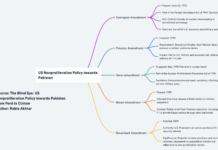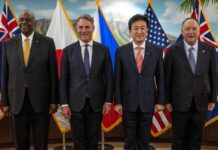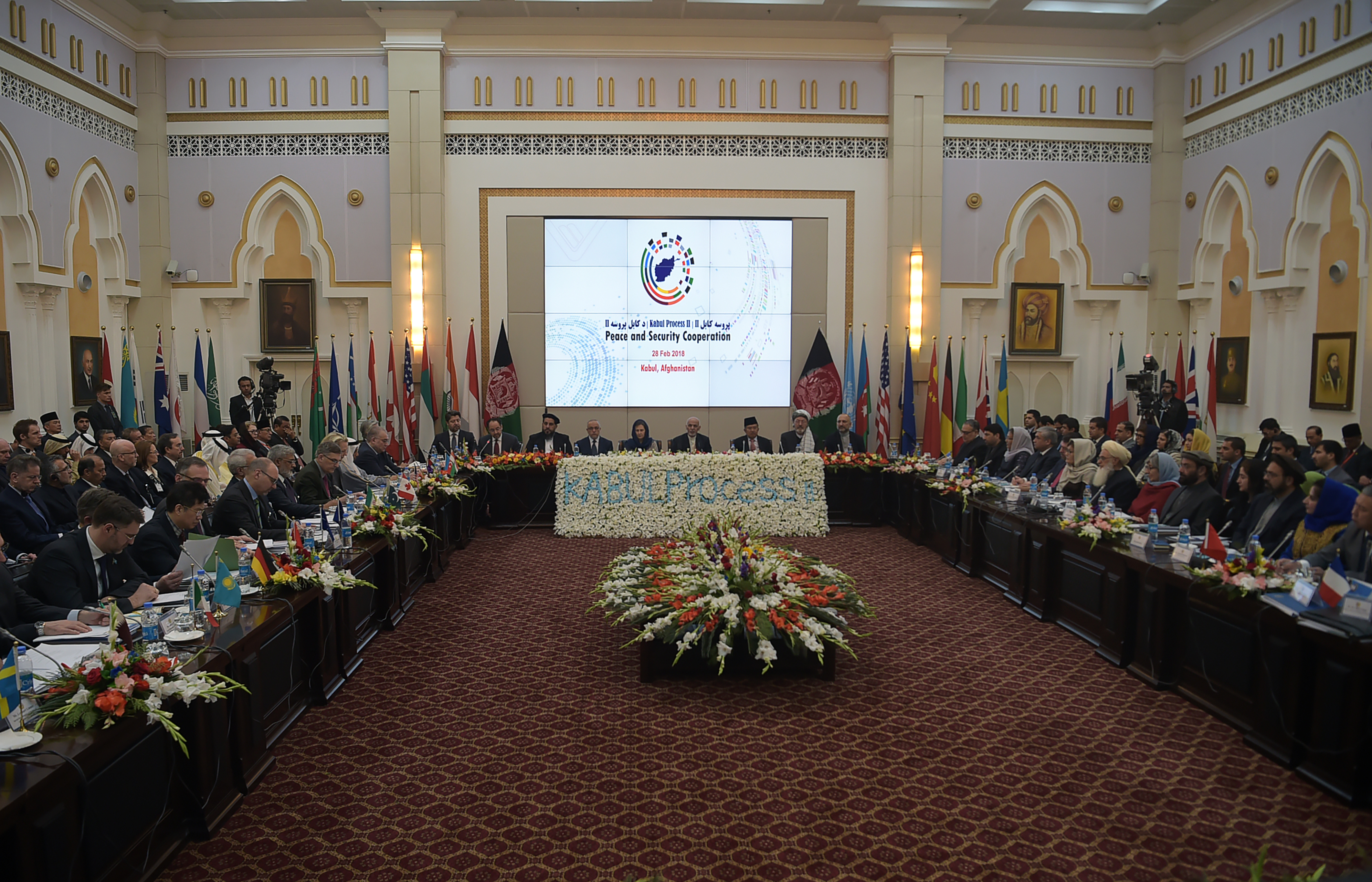Hamza Rifaat Hussain
The Trump administration’s national security strategy of 2017 with its South Asia section on page 50, prioritizes sustainable peace and stability in Afghanistan. The harsh wording against Pakistan is indicative of a zero-tolerance approach by Washington on issues such as extremism, cross border terrorism and reckless adventurism in the region. The merits of sidelining a Non- NATO ally such as Pakistan over India is contentious given the role that the country has played in curbing extremism domestically and how cross border terrorism equally emanates from Afghanistan as well. Yet what is more alarming is that the NSS criminally fails in promoting the conventional wisdom that frameworks such as the Quadrilateral Coordination Group which consists of China, Pakistan, the United States and Afghanistan brings to the table.
Unlike the NSS, the QCG is a framework for deliberation, discussion, bringing stakeholders onto the negotiating table and proposing strategies which places heavy emphasis on reconciliation and dialogue in Afghanistan. The first meeting of QCG was in January 2016 yet the initiative was grappled with problems such as the reluctance of the Afghan Taliban to come to the negotiating table and a deteriorating relationship between Kabul and Islamabad jeopardizing prospects for peace. Nevertheless the QCG continues to hold promise and will play a pivotal role in 2018 as myopic and zero-sum strategies for tackling the Afghanistan quagmire continue to emanate from Washington. Beijing’s desire to settle disputes through economic development and wield influence over Pakistan for a win-win situation in Afghanistan instead of a zero-sum game which props up India as a counterweight at the expense of members of the QCG is the requirement as military action and binary approaches have only exasperated the Afghan quagmire. It is precisely the binary approach in the NSS which is alarming and a mooting point for policy makers.
If examined closely, page 50 of the NSS which deals with South Asia and Central castigates Pakistan and reiterates the ‘do-more’ mantra which had alienated Pakistan after Trump’s 2018 tweet. It also sidelines China completely and puts emphasis on expanding the Indo- US strategic partnership to allow India to play a more integral role in the Indian Ocean. Such binary proposals negate on ground realities in Afghanistan which are complex and require a holistic and deeper understanding. The country is defined by war lordism, an integral role of the Jirga system in governing the affairs of the country, a rampant opium trade, ethnic and sectarian tensions as well as an active presence of the Islamic State in the Khorasan province of the country. Various stakeholders have competing interests as well where the Taliban’s stronghold in the country is threatened by the emergence of the Islamic State. Country’s such as Pakistan have wielded considerable influence over the Taliban as the Murree peace process clearly demonstrates and by sidelining Islamabad’s role in countering the Afghanistan quagmire, The Trump administration is allowing rogue elements to establish a stronger footprint in the country as well as carry out heinous attacks such as the one recently at the Intercontinental Luxury Hotel in Kabul.
There is talk of economic cooperation in the region but at the expense of China which rings hollow. Firstly, China is the only country which is championing the cause of linking Eastern and Western Asia through the OBOR initiative of which Afghanistan is a central cog in the wider goal of promoting regional prosperity. The rationale from China is that economic growth in Afghanistan can curb extremism and promote stability. While the merits of the argument are debatable, it is certainly more convincing than having boots on the ground in a country where less than 60% of its territory is beyond the central government’s control. This lack of imagination in the NSS is conspicuous which is likely to embolden adversaries rather than coax them.
The NSS is promoting greater daylight between Afghanistan and Pakistan which serves as a stark reminder that the NSS seeks to divide and polarize Islamabad and Kabul. Joint intelligence sharing as well as the constitution of a bilateral joint working group which deals with the religious clergy and prospects of bilateral dialogue between the Ashraf Ghani government and the Taliban will become a thing of the past. Support for a regional framework and an Afghan owned and Afghan led peace process is also absent, which could potentially promote greater schisms between regional powers such as China, Pakistan and India to carry forward with deep rooted solutions such as tackling the opium trade, promoting democracy, boosting the capability of the Afghan National Forces and above all, improving the state of the economy.
It is evident that a constructive approach which deals with human, political and economic security severely lacks in the NSS and upon first examination it is more a case of advancing US interests in South Asia than tackling security. Constructive engagement for promoting security requires an understanding of ethnic, religious and political complexities in Afghanistan which is known for not wielding to Western imposed or sanctioned arrangements. Defeating ISIS in Khorasan province for example, requires an understanding of the demographic composition of province as well as identification of political players which play a key role in the province. Similarly, reconciliation cannot be realized without dealing with the ethnic complexities of Afghanistan which includes an understanding of the role that Tajiks and Uzbeks have played in the democratic process in Afghanistan’s history. None of these factors are even touched upon in the NSS which vaguely talks about development and peace in Afghanistan yet fails to account for variables which play a role in ensuring that that sustainable peace is realized.
Hence, the role of the QCG becomes critical as Trump’s security strategy has come to the fore. It is through such a framework that conventional wisdom can still seep for Afghanistan’s future which is inextricably linked with Pakistan’s stability and China’s economic ambitions. Given that the United States is a party to the framework, it would be interesting to witness what sort of a role Washington would play. It can be rest assured however, that Donald Trump’s binary and zero-sum approach will only contribute towards instability and marks a massive departure from the role of the QCG which despite its flaws, champions the cause of reconciliation and sustainable peace in Afghanistan which is desperately needed.
Hamzah Rifaat Hussain is an anchor at PTV World. He tweets:@MonolithicAmz.

















